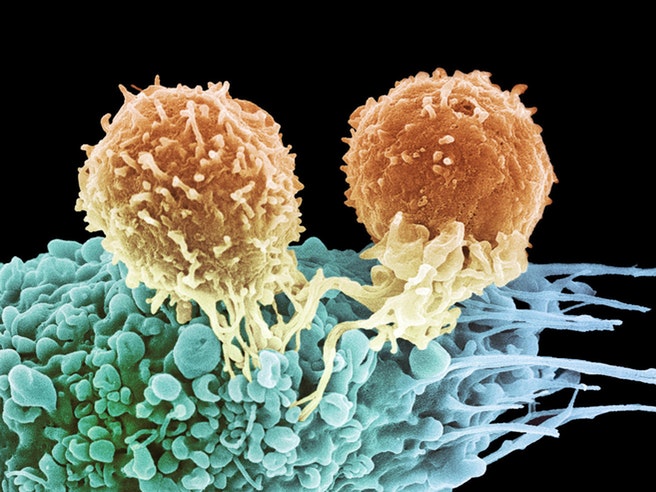현재 위치:홈 > 뉴스현황 > Press Events > Cancer Immunotherapy...
저자: 업로드:2017-09-12 조회수:
The balancing act that is cancer immunotherapy requires that the body’s antitumor response be given a boost, but not too much of a boost. For example, simply getting rid of Tregs, the regulatory T cells that moderate the immune system’s attack on cancer, would be risky. Such a rash act might precipitate a dangerous autoimmune reaction. An alternative, less extreme approach would be to inhibit Tregs while keeping them around.
Cancer immunotherapy drugs only work for a minority of patients, but a generic drug now used to increase blood flow may be able to improve those odds, a study by Columbia University Medical Center (CUMC) researchers suggests.
Merely tinkering with Tregs, CUMC researchers suspected, could boost cancer immunotherapy without letting the immune system get out of control. When the researchers tested the idea, by using a drug that interferes with Treg transcription, they found that standard checkpoint-blockade immunotherapies became more effective in mouse models.
Details of this work appeared in the journal Cell, in an article entitled, “NF-κB c-Rel Is Crucial for the Regulatory T Cell Immune Checkpoint in Cancer.” In this article, the Columbia University scientists report that NF-κB c-Rel ablation specifically impairs the generation and maintenance of the activated Treg (aTreg) subset, which is known to be enriched at sites of tumors.
“Using mouse models, we demonstrate that melanoma growth is drastically reduced in mice lacking c-Rel, but not p65, in Tregs,” the article’s authors wrote. “Moreover, chemical inhibition of c-Rel function delayed melanoma growth by impairing aTreg-mediated immunosuppression and potentiated the effects of anti-PD-1 immunotherapy.”
In mice with melanoma, the researchers found that the drug—called pentoxifylline—boosts the effectiveness of immune-checkpoint inhibitors, a type of immunotherapy now commonly used in the treatment of melanoma and other cancers. Pentoxifylline, the current study suggests, may be able to improve the odds that immunotherapy will be effective in cancer patients.
Checkpoint-blockade immunotherapy drugs—the first drugs were approved in 2011—target proteins on tumor cells or cells of the immune system that prevent "killer" T cells from attacking cancer. These drugs have revolutionized cancer care, but do not work for all patients.

"In advanced melanoma, for example, the cure rate is only about 20%. That's a remarkable improvement over previous therapies," said